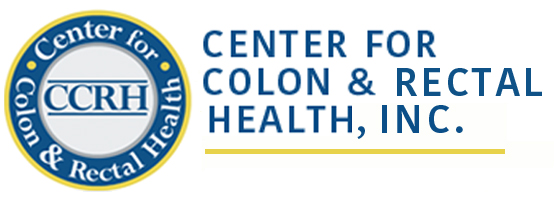Human Papillomavirus (HPV) is a group of more than one hundred and fifty related viruses. HPV is named for the warts (papillomas) that are symptoms of HPV and can cause everything from plantar or palmar warts (on the soles of the feet and/or the palms of the hands), to vaginal, penile, and anal warts. Certain strains cause cervical, vulvar/vaginal, penile, and anal cancers. In most cases, your immune system kills HPV before you even know you have it.
Many patients don’t know if they have been exposed to HPV, but may be at an elevated risk if their immune system has been weakened. Women with positive pap smears, men and women who have practiced anal intercourse, HIV positive patients, patients with certain autoimmune diseases, and patients being treated with steroids, chemotherapy, or prescription therapies that weaken the immune system (Remicade, Humira, etc.) all have a higher risk when exposed to HPV.
At the Center for Colon & Rectal Health, we understand that patients who have anal warts may be embarrassed to discuss these issues. Having to discuss any rectal symptoms can be awkward, but it doesn’t have to be. Millions of people suffer from HPV and anal warts. At CCRH, we are proud to provide personalized care and support for these complicated issues. The confidential and caring medical staff and experienced physicians take the time to listen to our patients and explain treatment options and ways to minimize recurrence.
There is no specific treatment for the HPV virus itself, but there are treatments available to manage the health issues caused by HPV. The majority of anal warts come from benign HPV strains and can be treated either in the office or, when required, in the operating room. When appropriate, we may treat anal warts right away with topical solutions, freezing, or burning them. HPV related conditions on the inside of the anus will likely need evaluation and treatment in the operating room.
Like screening for cervical cancer, pap smears or anal swabs may be performed to look for abnormal cells or the virus itself. If the test is positive for HPV, we may recommend high resolution anoscopy (highly magnified views with special solutions to highlight any abnormal growths or lesions) with biopsies for us to assess if the strain of HPV is one of the strains which present a risk for anal cancer.
A complete office evaluation includes anoscopy to see if any lesions are present within the anal canal. The surgeons at CCRH will evaluate all visible and suspicious lesions and potentially treat them at that office visit. When a patient is undergoing anoscopy in the operating room, specimens removed during the procedure will be sent to a lab to identify which subtype of the human papillomavirus caused the lesions. As with any virus, there is a risk of recurrence, but many recurrences are treated in an office visit painlessly.
If lab results identify the types of HPV that are known to cause cancer, the physicians at CCRH will be much more aggressive in providing the care, surveillance and individualized treatments necessary for each patient. All treatment options and decisions for your optimum health will be based on a very specific diagnosis. The CCRH medical staff and physicians are available to answer any questions you may have throughout your journey towards health.
The compassionate medical staff and the Fellowship trained physicians at CCRH will give you as much time as you need to feel comfortable with understanding your condition and the treatments available for this disease. Patients are encouraged to make a list of any questions about symptoms and discomfort before your office visit, and bring them with you when you meet with your doctor, which may make you feel more comfortable at your office visit. The CCRH physicians have many years of training and experience in caring for HPV patients and will take the time you need to assure you of our commitment to your good health.
More Information
Our goal is to provide you with a safe and comfortable environment. Every patient is different. We strive to offer you the most accurate and effective treatment options.
Please contact Bucks County’s premier colorectal group to schedule an appointment and to learn more.
St. Mary Medical Center
St. Clare Medical Building, Suite 130
1203 Langhorne-Newtown Road
Langhorne, PA 19047
215-741-4910


